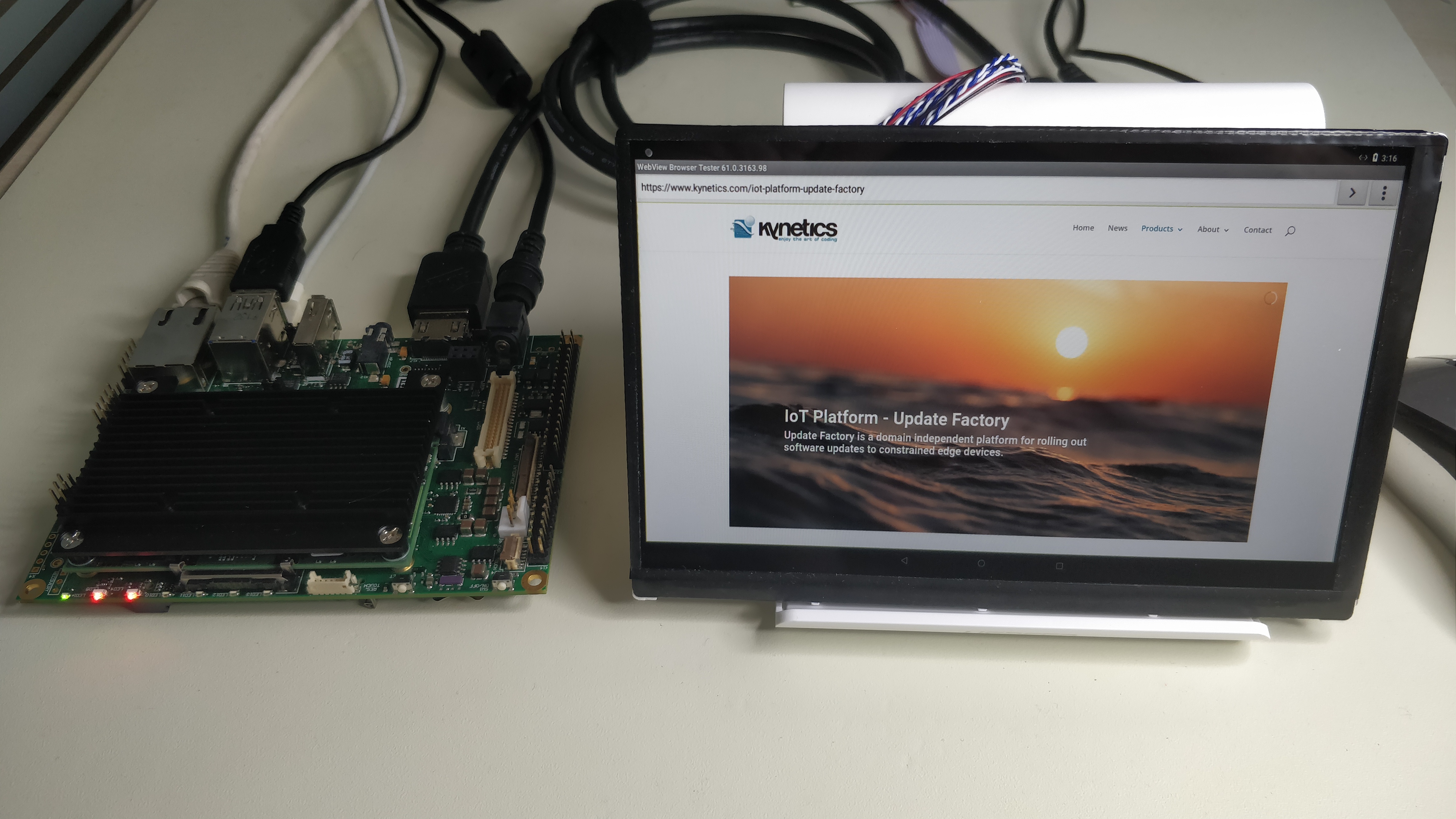Android Oreo for Toradex Apalis i.MX8QM
Android OS for Toradex Apalis i.MX8QM¶
Introduction¶
The Apalis iMX8 is a small form-factor System on Module based on the latest NXP i.MX 8 SoCs. The most performant i.MX 8 SoC, the i.MX 8QuadMax, features 2x Cortex-A72 and 4x Cortex-A53 application processor cores, and 2x additional Cortex-M4F, which also include a FPU, microcontroller cores. The integrated high-performance dual GC7000 3D GPU supports Open GL ES 3.1 and Vulkan on up to 4x 1080p or one 4K display.
The Apalis iMX8 is pin-compatible with the other SoMs in the Apalis family. This allows existing Apalis-based products to easily scale and migrate to the new Apalis iMX8. All Toradex's Apalis Carrier Boards are compatible with Apalis i.MX8.
Kynetics, as part of the Toradex early access program, has worked on the Android Kernel for the Toradex Apalis i.MX8QM and built an image based on Android 8.1 (Oreo) compatibe with the Ixora carrier board. The image boots form the SD-Card and it is very easy to program and test. The image supports also OTA updates through Update Factory

Release Notes¶
Here are some important remarks about our build:
- Android 8.1, U-Boot 2017.03, Linux Kernel 4.9
- Compatible with Toradex Apalis i.MX8QM with the Ixora carrier board
- Userdebug build with permissive SELinux and disabled DM Verity
- Android Verified Boot disabled
- Android A/B partitions disabled,
- Android recovery/single copy update is enabled for maximizing the eMMC (16GB) available storage space.
- OTA update can be deployed by using Update Factory: Learn more about our Android client for Update Factory.
- This is an unsupported release. For commercial support please contact us.
Flash Instructions¶
The following steps will guide you through the installation of Android 8.1 on the Apalis i.MX8QM.
Hardware Requirements¶
- Toradex Apalis i.MX8QM with the Ixora carrier board, V1.1A
- HDMI display - this release is tested with a FULL-HD display
- A USB mouse to use as an input device, connected to the upper USB 3.0 port on the X8 connector
- Micro SD card (at least 4 GB)
- A host computer running GNU/Linux, MacOS or Windows
Optional for debugging:
- Micro USB cable - adb access
- Toradex serial cable adapter as per this serial console tutorial
Software Requirements¶
- Kynetics Android 8.1 SD-Card image, downloadable here
- Android platform tools installed on the host computer - Optional for debugging
Software Preparation¶
On Linux systems:
- Flash the SD card with the provided image using the gzip and dd commands:
$ gzip -dc Toradex_iMX8QM-AndroidOS-o8.1.0_1.1.0_8qm-prc2-dev-1.0-SNAPSHOT-20181008.img.gz | dd of=/dev/X bs=512 status=progress conv=fsync
/dev/X is the SD card device path
- Insert the SD Card in the Ixora carrier board and power it on with the ON/OFF button
Known issues¶
As this is the first release of Android 8.1 for the Toradex Apalis i.MX8QM, there are issues that will be solved in future releases:
- Bluetooth is not working.
- Audio from 3.5mm jack is not working.
- While in the Android Recovery mode, there is no HDMI output.
- The USB port on the Ixora X7 connector is not working.
- Sometimes during boot the screen freezes on the Linux penguins. The issue is also present in the official BSP release from NXP for the iMX8QM MEK board.
Enjoy the Art of Coding™